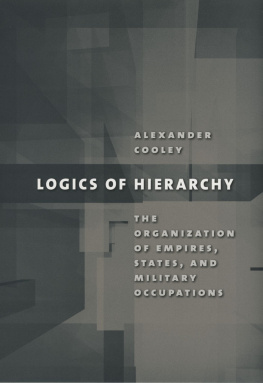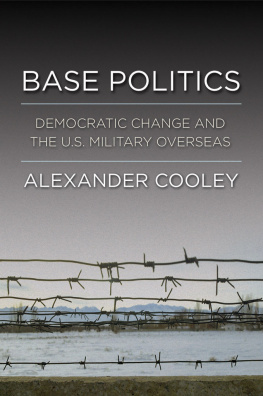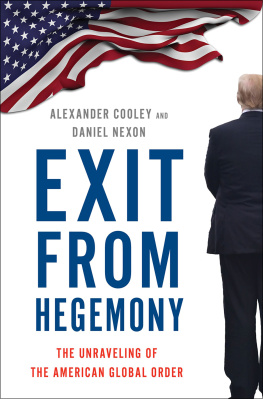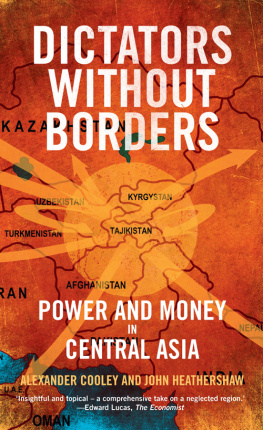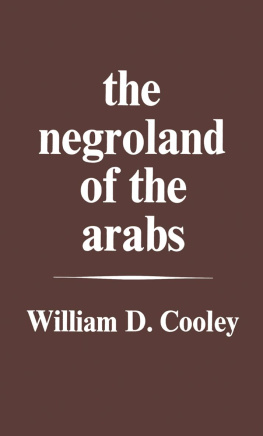PREFACE
Although the study of hierarchy is making something of a comeback in the public sphere, as can be seen in a renewed interest with imperialism in world politics, its importance as an academic topic is still fraught with controversy. My research interest in the dynamics of empires and military occupations, in how hierarchical polities are organized and governed, has culminated in this book. But so too has the critical commentary I have received at academic seminars and conferences from colleagues who have questioned my seemingly dispassionate approach to these politically charged phenomena. I have repeatedly heard comments such as What is the political purpose of such an investigation? or Why would you want to approach the study of empire in this calculating manner? This book provides answers to such questions.
Above all, this book is motivated by widespread misconceptions about hierarchy in both the academy and the real policy world. For some reason, we have been taughtespecially in the field of international rela-tionsthat hierarchical polities are relatively functional, ordered, and well-governed entities. In most classes and textbooks, political hierarchy is contrasted with the condition of anarchy, or the absence of a central governing authority, and students are dutifully instructed to note that the self-interest of individual states usually trumps any rudimentary mechanisms of international organization or world governance. Not surprisingly, from such an analytical starting point the dynamics of hierarchy do not seem as intriguing as the origins of war and peace, the interaction of international markets and states, or the role of NGOs and new contemporary challenges to the sovereign authority of states. Moreover, even when we do address the issue of hierarchy in international politics, we tend to spend very little time on its problematic nature: the types of control losses and authority slippages in hierarchical organizations and why the mere imposition of hierarchical governance does not always lead to the outcomes predicted by a dominant power. In truth, we have a caricatured understanding of the politics of hierarchy.
Such misconceptions are not limited just to academic discussions. The most recent U.S. military campaign in Iraq was predicated on the belief that the mere imposition of governance by an external power would automatically transform a political system, culture, and identity. Many believed that Iraqi democracy would be built naturally in the wake of Saddam Husseins discredited and brutal regime. Yet the daily stream of gruesome images from post-Baathist Iraq suggests that American hierarchical rule has not been sufficient for maintaining political order or promoting institutional transformation in Iraq. Why not?
It is time to reexamine just how hierarchical political organizations such as states, empires, and military occupations operate and how they actually govern political peripheries. We must explicitly identify the different ways in which hierarchies are organized and explore what types of hierarchical organization are likely to lead to significant institutional transformation in a periphery and what types are likely to fail. The analytical tools required for such an investigation are readily available in the social sciences, yet they have yet to be brought to bear on the topic.
This book has been a long, drawn-out project. Hendrik Spruyt, Jack Snyder, Lisa Anderson, Rajan Menon, and Alexander Motylsome of the most extraordinary scholars and public thinkers I knowgave me initial support and subsequent feedback that allowed this project to evolve beyond my original expectations. In addition, I am particularly grateful for the invaluable insights and help of peers and colleagues over the years, including Fiona Adamson, Karen Ballentine, Thomas Berger, Padma Desai, Daniel Deudney Jonathan Hopkin, Patrick Jackson, Robert Jervis, Robert Legvold, Kimberly Marten, Martha Merill, Daniel Nexon, Jeffry Olson, James Ron, Adam Sheingate, Peter Sinnott, Robin Varghese, and Thomas Wood. Special thanks go to my colleagues at Barnard College, Columbia Universitys Harriman Institute, and Columbias Department of Political Science for all their support over the years, as well as to the Social Science Research Council for a Title VIII fellowship during the 199798 academic year. Publication of this book was made possible, in part, with a grant from the Harriman Institute. Stephanie Boyum read several versions of this manuscript in its infancy and provided extraordinarily helpful guidance, while Adelle Tilebalieva provided excellent research assistance. The external reviewers and editors at Cornell University Press were true partners in shaping the manuscript and improving the quality of the work. Jack Snyder and James Ron encouraged me to apply the theoretical schema to Yugoslavia, although they are in no way responsible for the cases shortcomings. But my greatest appreciation is reserved for Mark Blyth, who has seen this project evolve over the course of our long and immensely rewarding friendship.
Books are, no doubt, most difficult for those unlucky enough to be around the author. I am thankful to my parentsEugenia and John Kent Cooleyfor their incredible support over these years as well as to my friends and relatives in the United States, Greece, and elsewhere for tolerating my rants. Above all, I thank my life love Nicole Jacoby for showing the patience of a saint and always encouraging me to make headway on the project, even when it involved real sacrifices on her part. She is truly incomparable.
Finally, I thank my two greatest mentors, without whom I would have never entered this business. The first is James Kurth (now Emeritus) of Swarthmore College. All those lucky enough to have been introduced to the world of international politics by him would agree that he is a brilliant, eloquent, and profoundly influential teacher. The second is John Kent Cooley, my father, an insightful political correspondent, fearless critic, and seasoned observer of world affairs for many years. This book is dedicated to him.
Alexander Cooley
New York, New York
CHAPTER ONE
UNDERSTANDING HIERARCHY IN INTERNATIONAL POLITICS
A central motivation of the United States in its 2003 invasion of Iraq was to topple the regime of Saddam Hussein and fundamentally change the domestic political institutions and political culture of an oil-rich Middle Eastern country. Proponents of the campaign argued that American military power could and should be wielded in order to promote democratization, speculating that a free Iraq would serve as an important model of political transformation for the surrounding region. Summarizing this view, on November 6, 2003, United States President George W Bush declared that American foreign policy, as embodied by events in Iraq, had adopted a forward strategy for freedom.
Although the overall military and strategic goals of the Iraq campaign were relatively clear (if controversial), the mechanisms through which the reconstruction and transformation of Iraq took place were not. Politicians and analysts of various political leanings criticized the American occupation of 20034 as disorganized, piecemeal, and lacking an overall strategy. The initial decision by the Pentagon-appointed Coalition Provisional Authority (CPA) to disband the old Baathist-operated institutions of the Iraqi state, most notably the Iraqi military, clashed with the practical requirements of stabilizing the country and establishing political order. The original plan to convene a national convention to draft a new Iraqi Constitution was postponed when it became clear that Iraqs ethnic and religious differences, not new political parties or Western political ideologies, endured as the basis for political affiliation. Dozens of American companies were assigned major reconstruction contracts amidst criticisms of noncompetitive bidding, cronyism and overcharging, but their overall project coordination was mismanaged and their exact relationship with the interim ministries and government agencies remained ill-defined. Throughout all of these political difficulties, the security situation in pockets of the country destabilized to the point where a permanent insurgency, not Coalition forces, controlled several cities. As the American occupation revealed, successful reconstruction was a far more challenging task than most policymakers had anticipated before the start of the military campaign.

